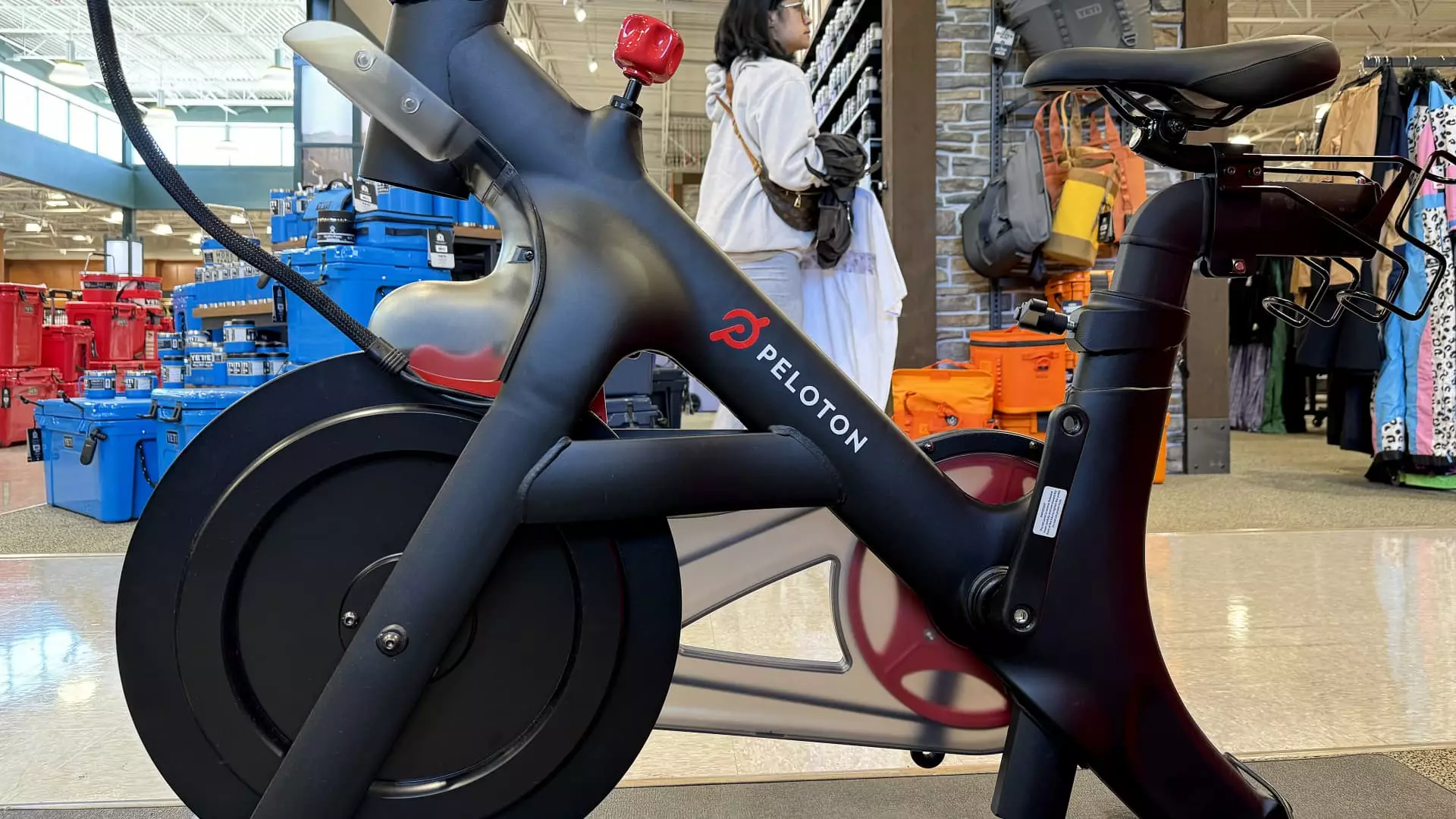The fitness industry has always thrived on novelty, but Peloton’s latest venture into the resale market through their new platform, “Repowered,” indicates a pivotal shift in how companies can maximize their existing assets. This new initiative not only reflects a savvy understanding of consumer behavior but also positions Peloton as a frontrunner in transforming a traditional marketplace into a modern, tech-savvy platform.
Capitalizing on Untapped Value
Peloton is astutely recognizing the potential in the mountains of underutilized fitness equipment gathering dust in homes across America. Offering a marketplace for pre-owned exercise machines is not merely about profit; it is a reclamation of value that consumers are desperate to achieve. According to recent estimates, the resale market for used fitness equipment is surging, largely fueled by a mix of pandemic purchasing and subsequent buyer regret. Peloton’s Repowered harnesses this bubbling demand, providing a platform where users can obtain decent returns on their abandoned bikes and treadmills.
By setting the stage for consumers to actively participate in resale, Peloton is further establishing brand loyalty. The enticing prospect of flipping unwanted gear for cash or discounts on shiny new products offers motivation for many users to remain engaged with the brand instead of abandoning it. In an era where consumerism often means a one-way street towards disposability, Peloton’s move screams practicality and sustainability—a refreshing pivot from the anticipated sheer consumerism that the fitness industry sometimes promotes.
AI-Driven Pricing: A Double-Edged Sword
Peloton’s incorporation of generative AI for pricing recommendations is a fascinating and somewhat contentious innovation. On one hand, it helps sellers establish a fair price based on critical factors like the age and condition of the equipment. It’s encouraging to see tech play a role in fair market value determination. Yet, one can’t ignore the potential drawbacks—this feature could lead to a homogenization of prices that stifles individual seller creativity and demands for unique listings.
Furthermore, reliance on AI to suggest prices may create situations where prices fluctuate crazily based on data interpretation, leaving sellers either underpriced or overvalued in the eyes of potential buyers. If not approached with caution, this could tarnish the otherwise innovative ethos surrounding Repowered. While using technology to assist in pricing is sagacious, it’s an open question if the algorithm can genuinely account for nuances that a human seller might grasp instinctively.
A Compelling Value Proposition for Buyers
For those looking to enter the Peloton community at a lower price point, Repowered keeps offering undeniable value. Cutting the activation fee for used products in half, from $95 down to $45, offers potential buyers an inviting opportunity. The platform not only provides a cost-effective entry but also assures buyers that they are obtaining vetted equipment—complete with usage history—which fosters trust in a world full of online uncertainties.
Peloton’s vision to create a safe and streamlined buying and selling experience could help mitigate the risks often associated with used-product marketplaces. This customer-centric approach could give Repowered a robust competitive edge over existing platforms, thus supporting Peloton’s mission to expand its brand appeal.
Competition and Potential Pitfalls
Whether Peloton can maintain its lead in the burgeoning resale market hinges not only on the execution of Repowered but also on its ability to stave off competition. Platforms like Facebook Marketplace and startups like Trade My Stuff are already entrenched competitors. Additionally, Peloton’s assertion that Repowered operates independently of Trade My Stuff could be seen as a declaration of aspirations to dominate this niche, but it also raises eyebrows about the collaborative potential that could benefit all parties involved.
While competitive pressures loom large, the very nature of a resale marketplace suggests a dynamic, volatile atmosphere. Keeping engaged with users while managing growth will require not just adaptability but a commitment to continue refining both the platform and user experience.
The Road Ahead for Peloton
As Peloton gears up to expand Repowered beyond its initial beta launch in select cities, its maneuvering towards growth and wider acceptance must be strategic. By addressing pitfalls early and maintaining an adaptable platform, Peloton has a unique opportunity to reshape how used equipment is traded and valued. This bold move could be the beacon illuminating a path toward revitalization for a brand that has seen its fortunes rise and fall dramatically. If executed well, Repowered may well become synonymous with the future of fitness equipment sales, bridging the gap between new buyers and eager sellers in a refreshingly progressive marketplace.

